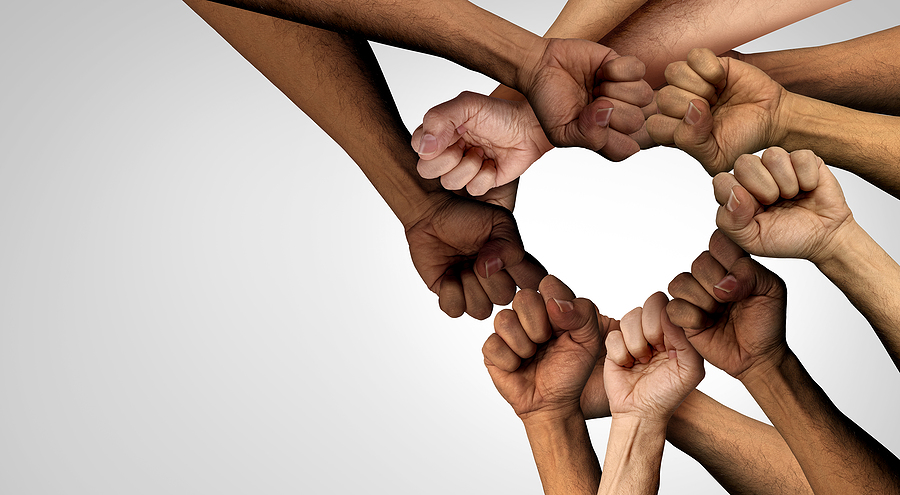
Keeping Safe Places Safe: The Church and Gun Policies
Keeping Safe Places Safe: The Church and Gun Policies
Keeping safe places safe is of growing concern as the number of mass shootings continues to rise. I believe the church has a role to play in creating effective gun policies. While churches are meant to be havens of safety, even they are no longer immune to gun violence. It’s time for the church to take a more hands on approach to reducing gun violence. I’m going to name four ways you can do that. I’ll also share additional resources you can use to spark greater discussion.
First, let’s address one myth.
The Myth that Mental Health is a Clear Indicator of Gun Violence
By now, we’re all far too familiar with the aftermath of gun violence. We delve into the shooter’s background, finding every detail we can about their mental health, and analyze it deeply. While this is necessary for us to be able to learn from these events, I think it’s important to distinguish that not everyone who is dealing with poor mental health is dangerous. Clearly people who perpetrate this sort of gun violence are not well, but that is not necessarily the same as being mentally ill. The truth is that people with mental health issues are more likely to have violence perpetrated against them, than for them to perpetrate against others.
As the church, we can benefit our communities by advocating for increased access to mental health services. But will that solve the problem of proliferating gun violence?
Coupling
In the book Talking to Strangers, Malcolm Gladwell writes about coupling theory. Coupling is the notion that certain behaviors are linked or coupled to specific contexts. For instance, suicide is positively correlated with the existence of the Golden Gate Bridge. In other words, people jump because the bridge is there. This is contrary to the assumption that if people want to kill themselves, they will find a way to do it, even if jumping from the Golden Gate Bridge is made much less accessible.
Similarly, access to handguns is shown to increase the incidence of suicide.
Might the same be true of AR-57s, AK-47s, and other military-grade weapons that are often used in mass shootings?
Just as suicide rates decline as certain environmental factors are made inaccessible, it’s reasonable to hypothesize that gun-related homicide rates could also decline if access to military-grade weapons was more regulated. This needs to be studied and discussed calmly and carefully.
But there is more that the church can do to keep safe places safe.
The Church and Gun Policies
Just as churches offer seminars on lifestyle topics such as parenting, finances, and end of life decisions, why not add safe gun ownership to the list? Consider offering a seminar, led by local gun safety specialists, that is open to the public. Here are some of the potential issues that could be addressed.
Gun Policies in the Home
Cover best practices for firearm owners including safe storage. Best practices include storing guns unloaded and using separate safes to store guns and ammunition. In homes with children or other high-risk individuals, it’s sometimes best to store guns and ammunition at a location away from the home. Educating the gun-owning public is a way that churches can reinforce the idea of keeping safe places safe.
Gun Policies in the Community
Churches can educate their people about how to create safer neighborhoods. Organizations such as Project Safe Neighborhoods “identify the most pressing violent crime problems in a community and develop comprehensive solutions to address them.” Partnering with organizations like this that care about the common good help to keep safe places safe. And to help turn unsafe places into safer places.
Gun Policies in the Nation
Churches have the right and the responsibility to help educate their community in ethical matters of peace and justice. And to do it in a way that is both civil and respectful. Churches can offer nonpartisan seminars on the issues that impact the community and beyond and how to address them. When churches lead the way in addressing ethical issues for the common good, it encourages others to do so as well. Stay engaged with what is happening at the state and national levels. Speak up when you do or do not agree with what you’re seeing. What you say and do matters. Lastly, thank your legislators for passing this recent bipartisan bill aimed at reducing gun violence, which is a step in the right direction.
Gun Policies in the Church
Finally, turn your attention to your own congregation. Discuss the pros and cons of having a designated safety team in your congregation. Appointing clearly defined individuals who know what to do in a chaotic situation can help keep everyone safer.
Next Steps
I give thanks for my friend and colleague, James–Pastor in Tulsa, Oklahoma, where a recent mass shooting took place–who said: “Prayers are appreciated, but the best thing we can do is to put pressure on politicians to get real about addressing the root problems. Mental health, common sense gun policies, the pervasive culture of hate and violence, and the deflection of responsibility. As a clergy leader, I am preaching, leading, and encouraging members of my community to take action.” James and I spoke at length about this when he joined me for a livestreamed session of Leadership Mojo.
Listening to James, I introduced this series on the role of the church in gun violence, I have addressed the deflection of responsibility, disarming the culture of hate and violence, and the role of the church in creating solutions to gun violence. Now is the time to begin creating a culture of safety and responsibility by using your voice to promote peace and safety.
Let’s do our part, and draw strength from the scriptures: “And let us not be weary in well doing: for in due season we shall reap, if we faint not.” -Galatians 6:9
Copyright © 2022 rebekahsimonpeter.com, All Rights Reserved.



